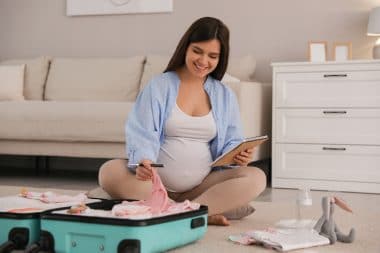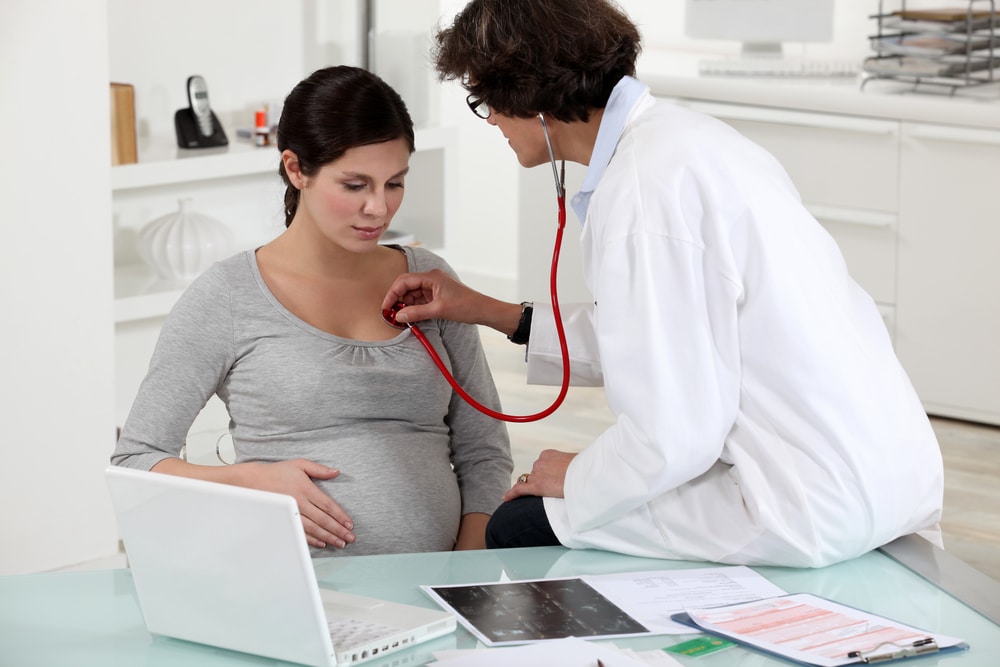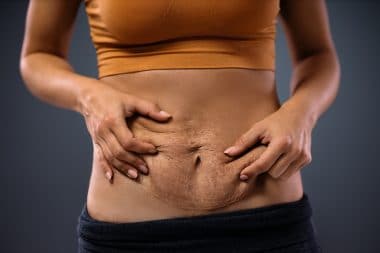Pelvic pain during pregnancy is very common. More than twenty percent of pregnant women are affected by hip pain during pregnancy. The hip pain can affect the side or back of the hips, or the pelvic girdle area. The pain can be sudden or dull, either lasting for a long time or coming on suddenly. Usually hip pain is not a sign of complication. If you experience lower abdominal pain that doesn’t go away, spotting, or labor like feelings of back pain moving to the front of your abdomen you will want to reach out to your doctor to make sure preterm labor isn’t happening. Â
There are some main causes of hip pain during pregnancy. Â
One of the main causes in that your body produces more of the hormone relaxin. Relaxin increases during your pregnancy and relaxes the tissues that connect your muscles to your bones. Though this helps make labor easier, it can cause hip and joint pain. Â
Another cause of hip pain is the weight you gain. Weight gain during pregnancy is of course normal. But gaining the weight your body isn’t used to can put stress on your joints and muscles. Weight gain during pregnancy can vary from eleven pounds to forty pounds. Normal weight gain your doctor will want you to gain is twenty-five to thirty-five pounds for a single baby pregnancy. If you have questions about how much weight you have gained speak with your doctor. Do not try and lose weight during pregnancy unless otherwise discussed with your doctor.Â
Weight gain can cause you to have poor posture. And poor posture can cause you have hip pain. If your baby settles to more than one side of the uterus than the other it can also cause your posture to change putting stress on your body. If you have other tiny children that you are lifting or carrying on a hip this can also cause you to have poor posture. Make sure you wear supportive shoes throughout your whole pregnancy. Make sure you get up and walk around as much as you can and try not to sit too long.
A more uncommon cause of hip pain is transient osteoporosis. This is usually caused by low calcium or potassium levels. Transient osteoporosis is when the hip bones start to wear down. This can start in the second or third trimester. It can right itself after pregnancy. In rare cases it can lead to bone fractures.Â
How you sleep can also affect your hip pain. Once you get far enough along in your pregnancy the amount of sleeping positions decreases to mostly sleeping on your side. Sadly only being able to sleep on your side can cause you to have hip pain. Make sure you keep your legs bent with a pillow between your knees when you are sleeping. You can always invest in a pregnancy pillow that allows full body support.Â
If you are having your second pregnancy it seems that hip pain happens more likely. Along with a second pregnancy if you are carrying a large baby, low you will have more stress put on your pelvic ligaments. As some doctors say the second pregnancy just gets harder. Â
Since hip and pelvic pain is very common there are some ways you can help maintain it so you aren’t so uncomfortable during your pregnancy. Most of the treatments can be done at home. You can schedule prenatal massages with a trained professional to help with your pain. If you do it correctly your partner may be able to give you some massages at home. Make sure you talk to your doctor to get instructions on how the best way to massage at home is. Another thing you can try is prenatal yoga. This is a very good option of exercise throughout your entire pregnancy. It is gentle and low impact so it isn’t too hard on your body. It does keep you active and can help alleviate your pain, while stretching and loosening up your hips. If yoga poses don’t do the trick, you can try some physical therapy moves to stretch your hips. You can either go to a physical therapist of get exercises from your doctor that you can do at home. If your pain still hasn’t decreased you can try over the counter medicines, such as Tylenol. Usually doctors will tell you that taking Tylenol throughout your pregnancy is alright. You can also buy a pregnancy support belt to help support some of the weight in the belly. If these options don’t work you can try a warm bath or warm compress. Make sure that your bath isn’t too warm as to not increase your inner body temperatures. Warm compresses are better than cold ones to relieve hip pain, the warmth will bring blood to the area to loosen stiffness and decrease muscle spasms. If you use a warm compress make sure that you don’t apply it directly to your stomach. And only use it for about twenty minutes so not to raise your body temperature. With a nice warm bath you can try adding some epsom salts to help with the stiffness in your joints. Â
There are lots of reasons that can cause you to have hip pain during pregnancy. None of them lead to complications for you or your baby but they can be incredibly uncomfortable. If you are experiencing unmanageable hip pain speak with your doctor to see if they have any other options to help you. Try stretching, wearing supportive shoes and staying active throughout your pregnancy. If you experience cramping more than ten times an hour that doesn’t go away with adjusting your position, or eating something call your doctor to make sure you aren’t in preterm labor. Just know that the hip pain should go away after the baby is born. Â
Pregnancy hip and pelvic pain can be part of your body preparing for labor and delivery! Find out more here. #HealthStatus
Relaxin increases during your pregnancy and relaxes the tissues that connect your muscles to your bones. Though this helps make labor easier, it can cause hip and joint pain. Â
Sources:
healthline.org
americanpregnancy.org








Reply